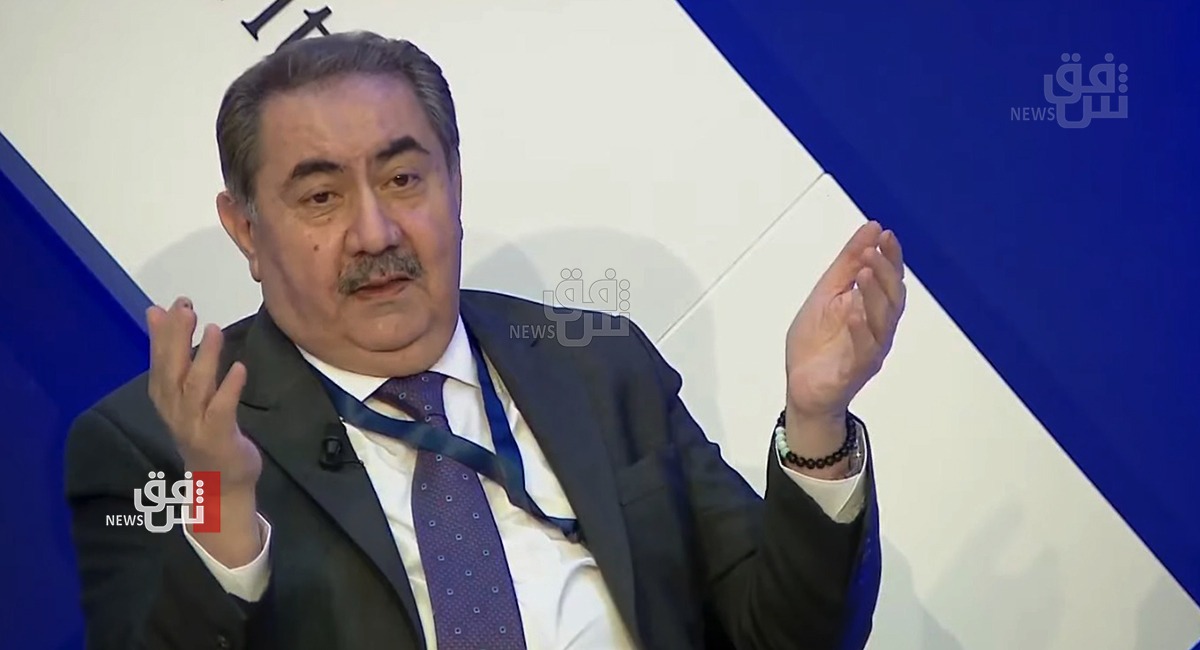Laying down arms is a turning point. Iraq faces a golden opportunity fraught with risks.
 Former Iraqi Foreign Minister Hoshyar Zebari described Iraq on Friday as having a “golden opportunity” to stand on its own two feet and move forward, both in terms of the investment climate encouraged by the government of Mohammed Shia al-Sudani, the overall improvement in the security situation, and the recent regional shifts in the balance of power.
Former Iraqi Foreign Minister Hoshyar Zebari described Iraq on Friday as having a “golden opportunity” to stand on its own two feet and move forward, both in terms of the investment climate encouraged by the government of Mohammed Shia al-Sudani, the overall improvement in the security situation, and the recent regional shifts in the balance of power.
In an interview with the English-language newspaper The National in Abu Dhabi, translated by Shafaq News Agency, Zebari said that Iraq is moving on multiple fronts, and they will hold national elections to choose a new government.
Economically, according to Zebari, Iraq is attracting foreign investors primarily due to improved security across the country, a decline in terrorist attacks and unrest, and its recent encouragement of American companies to invest, particularly in the oil sector.
According to the newspaper, several factors are encouraging this development boom, including an improvement in the security situation to levels unprecedented since 2003. This calm, particularly since late 2022, when the Sudanese government assumed power, has provided the confidence to launch infrastructure projects and implement reforms aimed at improving the business environment .
In this regard, Zebari was quoted as praising the “good intentions of the Iraqi government,” despite the unstable situation, warning in this context that the recent drone attacks targeting American investments in the Kurdistan Region could undermine investor confidence .
According to the former foreign minister, “The Iraqi government investigated this case, but when the investigation concluded, it did not name any of the perpetrators, which discouraged investors.”
More than anything else, Iraq needs an investor-friendly environment, security, a court, laws, and control over outlaws and militias, Zebari says.
After noting the government’s recent withdrawal of the Popular Mobilization Forces (PMF) bill following intense US pressure, the report quoted Zebari as saying, “The US position has been very explicit recently, unlike before, when they usually conveyed these messages through diplomatic channels. This time, however, they have openly and publicly declared that they will not support the passage of the PMF law.”
In the interview, Zebari addressed “positive change” in the region, pointing to the trend toward placing weapons and non-state actors under state control, as in Lebanon, Syria, and the Kurdistan Workers’ Party.
The report addresses regional power dynamics that have undergone dramatic shifts over the past year following the defeat of what it claims was the “Axis of Resistance.” The fall of Bashar al-Assad’s regime in Syria removed a central client state and a pivotal conduit for Tehran’s regional influence, linking Iran to the Mediterranean via Iraq and Lebanon. Iran’s grip on Iraqi militias has also weakened.
But the report quoted Zebari as saying that the fall of the Assad regime in Syria was a “turning point in the Middle East,” adding that it occurred “at a pivotal moment, and was a surprise to many regional powers. I believe it was a blessing for the entire region, even though the new rulers were unknown, but politics accepts the facts on the ground.”
The former Iraqi foreign minister, a prominent leader in the Kurdistan Democratic Party, concluded by saying, “Syria’s new rulers have achieved significant progress in less than a year, and they now enjoy acceptance and appreciation in the Arab world and internationally.”
Shafaq.com
